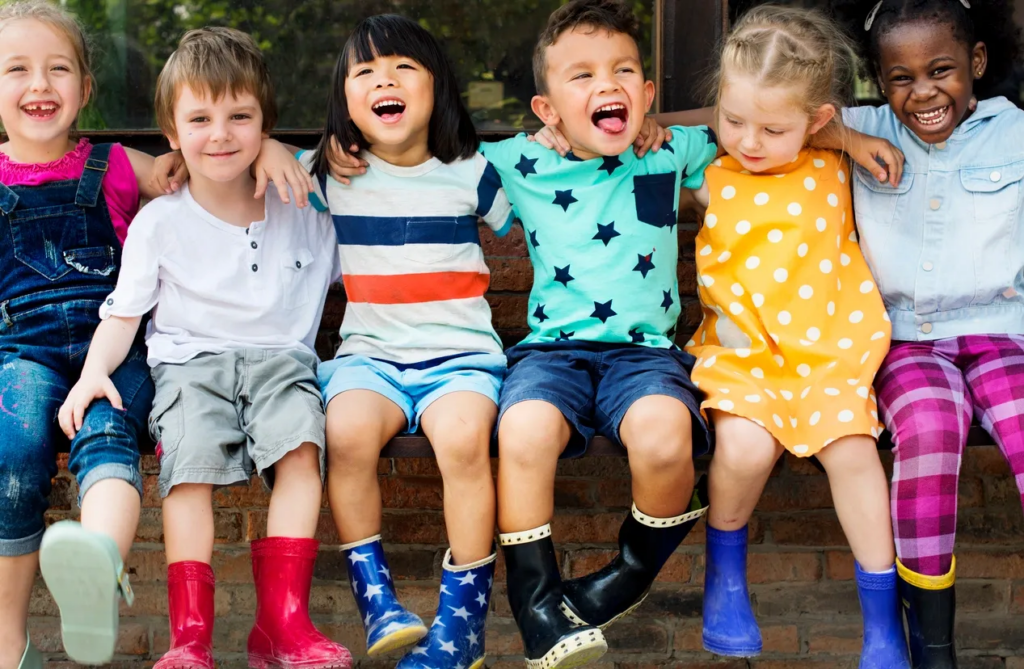
Social skills are an essential part of a child’s overall development. In the preschool years, children begin to interact more with their peers, learning how to communicate, share, cooperate, and resolve conflicts. The development of these social skills is crucial for building healthy relationships, succeeding in group environments, and fostering emotional intelligence.
One of the best ways to strengthen social skills in preschoolers is through play, particularly with Montessori toys. These toys encourage collaborative play, group interactions, and independent decision-making, all of which contribute to the development of strong social skills. In this blog, we’ll explore how Montessori toys for preschoolers can help children build essential social skills through imaginative play, role-playing, and teamwork.
Social skills are the foundation for healthy communication and interpersonal relationships. For preschoolers, learning how to take turns, share, and cooperate with others helps them navigate group settings such as classrooms, playgrounds, and family gatherings. These skills also play a critical role in emotional regulation and conflict resolution, enabling children to express their needs and feelings in a constructive way.
As preschoolers move toward more social environments, it’s important to provide them with tools that encourage cooperation and communication. Montessori toys are designed to promote both independent and group play, making them ideal for strengthening social skills in a natural, hands-on way.
Montessori toys are intentionally designed to foster holistic development, including social, emotional, and cognitive growth. Through interactive play, children learn how to interact with others, practice empathy, and develop key social skills that will serve them throughout their lives. Here’s how Montessori toys encourage social development in preschoolers:
Group play is a powerful way to teach children how to collaborate, share, and communicate with others. Montessori toys for group play—such as wooden building blocks, puzzles, or team-based games—encourage children to work together toward a common goal.
By participating in group play, children learn how to take turns, negotiate, and compromise, all of which are essential skills for social interaction.
Role-playing is another excellent tool for strengthening social skills. By engaging in imaginative play, children can practice taking on different roles, acting out social scenarios, and learning how to respond to various situations.
Role-playing helps children understand social dynamics, build emotional intelligence, and develop the ability to see things from another person’s perspective.
One of the key social skills that preschoolers must learn is how to share and take turns. Montessori toys that encourage cooperative play—such as puzzles, building sets, or games—provide opportunities for children to practice these skills in a fun, low-pressure environment.
By learning to share and take turns, children develop patience, cooperation, and the ability to navigate group dynamics, all of which are essential for social success.
Conflict resolution is a key component of social development, and Montessori toys provide preschoolers with opportunities to practice solving problems with their peers. Through play, children learn how to resolve conflicts, negotiate solutions, and communicate their needs effectively.
These types of interactions help children develop emotional regulation and learn how to handle disagreements in a respectful and constructive way.
There are many Montessori toys that promote social development in preschoolers. Below are some of the best options for encouraging group play, role-playing, and teamwork, all of which are essential for building strong social skills:
Wooden building blocks are classic Montessori toys that encourage group play, cooperation, and problem-solving. These blocks can be used in collaborative building activities where children work together to construct towers, bridges, or other structures.
Role-playing toys, such as wooden dolls, animal figurines, or people figures, allow children to act out social scenarios and practice communication, empathy, and emotional regulation. These toys encourage imaginative play and help children understand social dynamics through pretend situations.
Montessori puzzles are excellent tools for promoting cooperation and turn-taking. By working on a puzzle together, children practice sharing materials, communicating their ideas, and collaborating to complete the task.
Montessori team-based games, such as cooperative board games or matching games, provide opportunities for preschoolers to work together, strategize, and share responsibilities. These games encourage teamwork, problem-solving, and communication.
In addition to promoting social interaction, Montessori toys also support emotional development by helping children practice self-regulation, empathy, and emotional expression. By engaging in collaborative play and social scenarios, children learn to manage their emotions, respond to the emotions of others, and express their feelings in a healthy way.
Through role-playing and social interactions with Montessori toys, preschoolers develop empathy by imagining how others feel and responding to those emotions. This emotional awareness is critical for building strong, positive relationships with peers.
When children play together, they sometimes experience frustration, disappointment, or disagreements. Montessori toys that encourage teamwork and problem-solving provide opportunities for children to practice emotional regulation and conflict resolution in a safe, supportive environment.
When selecting Montessori toys for promoting social skills in preschoolers, it’s important to choose toys that encourage collaboration, communication, and imaginative play. Here are some tips for choosing the best toys for social development:
Look for toys that encourage group interaction and teamwork. Building sets, puzzles, and team-based games are great options for promoting cooperation and communication.
Role-playing toys such as wooden dolls, animal figures, or people figurines allow children to act out social scenarios, practice empathy, and navigate different roles in a playful setting.
Open-ended toys like wooden blocks or stacking rings can be used in various ways, allowing children to collaborate, negotiate, and communicate as they create and build together.
Montessori toys provide preschoolers with valuable opportunities to develop essential social skills such as communication, empathy, cooperation, and problem-solving. Through group play, role-playing, and collaborative activities, children learn how to navigate social interactions, build positive relationships, and express their emotions in healthy ways.
By incorporating Montessori toys like wooden building blocks, role-playing toys, and cooperative puzzles into your child’s daily routine, you can help them strengthen their social skills in a fun, engaging, and developmentally supportive environment. These toys not only promote social growth but also lay the foundation for emotional intelligence and lifelong interpersonal success.
Leave a comment